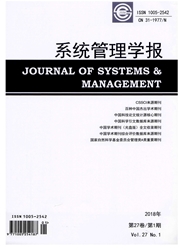

 中文摘要:
中文摘要:
探讨了信息共享的群体研讨中不同类型的评价观点对认知过程和群体绩效的影响。研讨人员提出自己的观点,允许和鼓励对他人观点发表肯定和否定的评价。和禁止评价相比,同时允许发表正反两方面评价的群体产生更少的主意,因为认知激励的效果不明显;仅允许和鼓励发表肯定评价的群体产生更少的主意类别,而同一语义类别下的主意数量多;仅允许和鼓励批判的研讨人员产生的主意语义类别多,但同一语义类别下的主意数量少。进一步讨论了评价观点的认知效果和实际应用价值。
 英文摘要:
英文摘要:
The effects of various evaluated views on cognitive process and group performance during group argument were assessed. Participants generated ideas while been permitted and encouraged to give positive and negative evaluation on the sharing ideas. Compared to control condition, in which forbidden to evalu- ate, participants generated less ideas when permitted to give positive and negative evaluation because the cognitive stimulation effects were not obvious. Participants encouraged to praise generated more ideas within a semantic domain and fewer diverse ideas, while groups encouraged to criticize led to a higher level of diversity, but a lower level of ideas per category. Implications for cognitive effects of evaluated views in group argument are discussed.
 同期刊论文项目
同期刊论文项目
 同项目期刊论文
同项目期刊论文
 期刊信息
期刊信息
